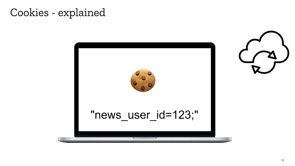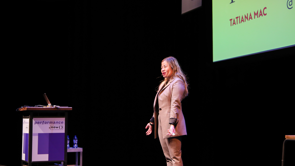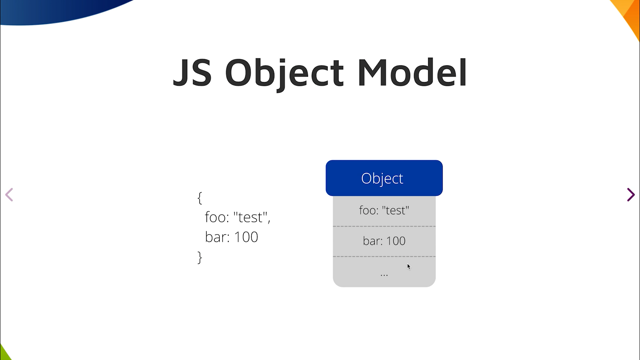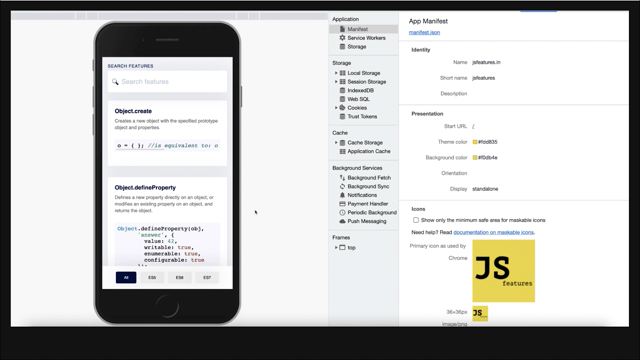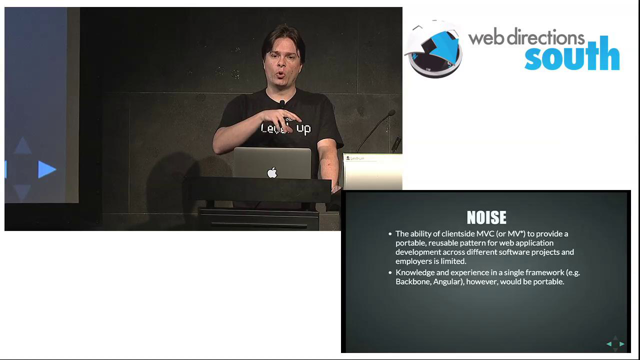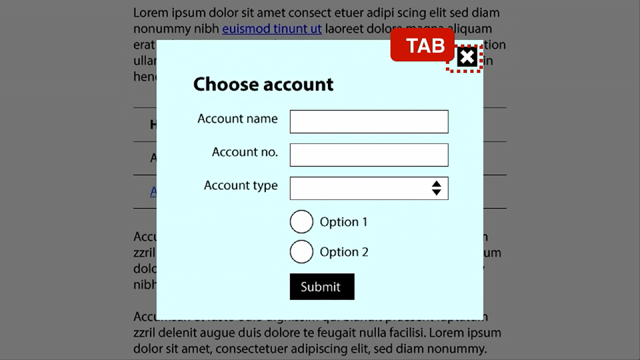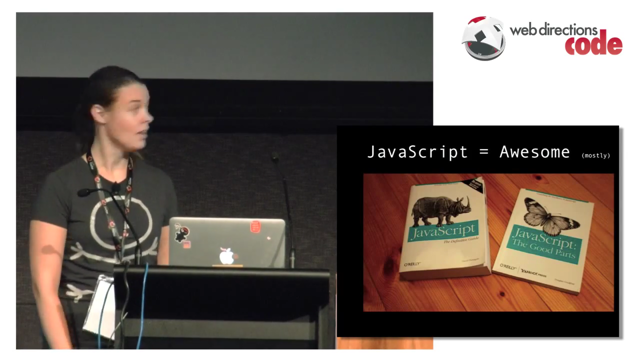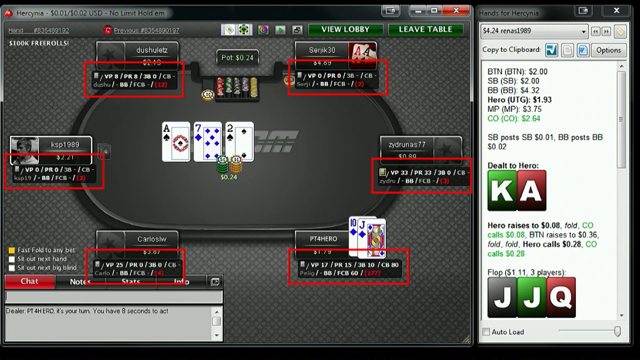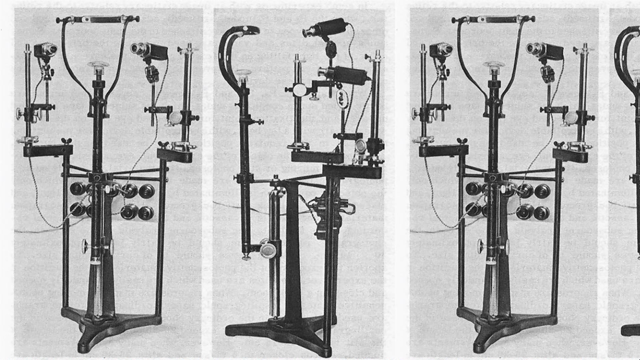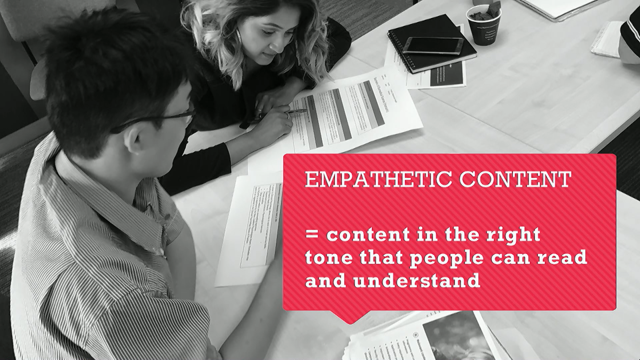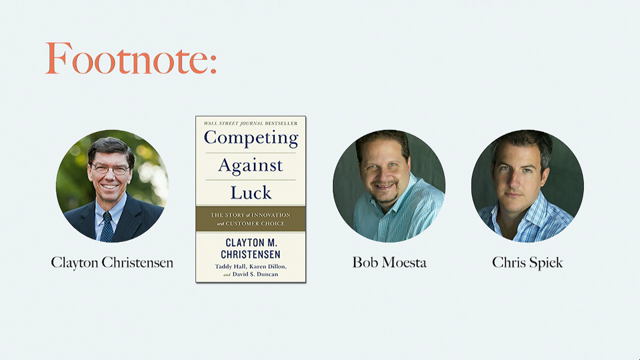
(techno music) - Hello.
(speaks foreign language) My name is Stefan Schroeder.
I'm an experienced designer here in Melbourne and although I'm a designer, I'm really fascinated by numbers and mathematics and math problems. This maybe sounds crazy being a designer.
But I was also crazy enough to actually study mathematics in the beginning.
I gave up after two years, I reckon, because I decided to do something more tangible. However, as I said, I'm also from Germany and in Germany, as you might know, we love rules, guidelines, regulations.
We love security and privacy.
This is also one of the reasons why I actually wrote my bachelor thesis then about ways and applications to actually prove that a website is trustworthy. So you can enter like website address and it says, "Okay, this website is trustworthy." And this was for me kind of the way to design actually in the end.
So for me it was always important to create something that can be trusted.
And as a designer in my career, I was always patient about creating something which is authentic. For me, always what drives me is about making a difference, creating an impact in the end.
And this also leads to my topic today "Why Designers Should Care About Blockchain" because I'm really passionate about blockchain technology. It is maybe weird talking about blockchain at a design conference, but I think we need more designers being excited about blockchain. That's why I'm here.
Before I talk about blockchain, I wanna talk about impact because when I talk to designers, impact always plays a really important role. This is something that drives us.
I once picked up a quote and I don't remember the person behind that but the person was saying that a good designer is always a pissed off optimist and I believe that too because we are crazy enough to challenge and change the status quo and to make a difference, to make something better, to deliver impact in the end.
When I talk about impact, it maybe sounds a bit idealistic, but it's always about making the world a better place even a little bit. I know that's cheesy, but that's what it's about and for me the question as a designer, "How can I deliver more impact in the future?" I have two provocations for you to start with. Number one, I don't think that the future of creating impact looks like this, like being in the Matrix, and I don't want to step on anyone's toes.
This is maybe a cool, fancy, sexy virtual reality experience, but I will challenge you if this really creates real-world impact in the end. Does it really solve a wicked problem, does it really change a behaviour, does it change the world or make it a little bit better? Number one.
Number two, the internet is dying.
It's broken.
Back in the 1990s, people believed that technology is a decentralising force, which means it gives us power, it gives us freedom.
Today we have lost faith in that promise.
Many people in the community are worried about the role that tech giants play in our lives, especially when it comes to selling our data to make service free. We just pay with our data or using technology just to watch us.
So people nowadays think that the internet and technologies are a centralising force and not decentralising. And we also have to watch the news.
Hacks, fake news, data breaches, it's all over it. So what is the revolution? Where does it start? Surprise, surprise I'm here to talk about the blockchain because this is for me the revolution to solve these problems. Before I go into, I always like to look at the history and to look at the story because I always like a good story and I actually think Blockchain is a great and amazing story.
It started in 1991.
Some really smart guys, they come up with like a cryptographically secure chain of blocks data, whatever. Then some other smart guys improved it by creating this Merkle tree and it looks already terribly complicated and I know that, especially for designers.
There are numbers on there.
It's weird.
The exciting thing about this is everything is started already in 1991.
I didn't know that when I looked into blockchain. It's actually quite exciting.
The next milestone is actually my favourite one. It's 2008, quite a while, a paper was published describing digital currency, so peer-to-peer cash system, and we all know this as bitcoin.
Bitcoin, as the software was released in 2009, nice, but the interesting thing, which is fascinating for me is that no one knows the author of the paper. It's an unknown person, anonymous.
It could be a group of people.
It could be Mark Zuckerberg.
We don't know it.
I just like the fact of it because it just makes it authentic.
2013, there's actually a face.
It's a teenager, Vitalik Buterin, and he extended the concept of cryptocurrency bitcoin into something else. He created the concept of trust.
He proposed a platform where the community, everyone, can build distributed apps using the blockchain technology. This was new because it's just going beyond a bitcoin. He proposed a concept that we use smart contracts so these are things and contracts that can execute itself and also using decentralised organisation, which means in the end, we can build an organisation where we don't need a boss.
For me, this is music in my ears, yeah, because it goes back to the early beginning of the internet, yeah, a decentralising force giving back power and freedom to the people.
What about today? So I took this screenshot and this is just showcasing, visualising the Google trend for bitcoin from 2013 until today and what you can see is the graph is quite flat for some years, some peaks.
At the end of last year, it really took off. It was a breakthrough.
Everyone thought, "All right, let's make some money" "with bitcoin" and everyone was like, "Yeah." In fact, some people lost money, it goes down again, everyone is coming down.
I'm not here to talk about bitcoin because I'm interested the technology behind this and blockchain, so I was comparing this to blockchain.
I actually can't give you any advice on bitcoin if you wanna get something, but I'm interested in this. What we can see is that the interest in blockchain in comparison to bitcoin is marginal.
It looks like no one really cares, if you compare this, which for me is a bit frustrating and sad because we should be more interested in what's behind actually bitcoin because it offers so much more opportunities for us.
You may be sitting in this room and you see me and I'm talking and maybe ask, "what the fuck is actually blockchain?" I will not go down into any details.
Will not scare you with any graphs and charts and whatever. You find this if you Google blockchain.
There's loads of it.
Just read the Wikipedia article.
I have read it at least five times.
I'm more interested in the value proposition on what it can offer to us.
I'm more interested in some key features, not exactly how it works.
I found this description in the book.
I can recommend this book if you're interested. "The blockchain is an incorruptible digital ledger" "of economic transactions that can be programmed" "to record not just financial transactions," "but virtually everything of value." For readers, maybe because I'm German, but I obviously think this is complicated, but for me there are two important things in there that I wanna highlight.
First of all, incorruptible.
So this technology allows us to create something which is incorruptible. No one can manipulate it.
No one can corrupt us and that's a great thing if you can think about giving power to the people. Second thing is everything of value, which for me is interesting as well because it's not just about money and currency and bitcoin.
It is more, yeah.
Basically it just means that anything that was once thought really on paper, was done on paper can now be done on the blockchain.
Records of ownerships, financial statements, personal data, health records, etc.
It is incorruptible and it's owned by the user. It is not owned by any tech company.
It is not owned by Mark Zuckerberg.
What are some of the key features? First of all, it gives us finally control of data and sensitive information.
We can now truly control what is happening with our data that we provide and sensitive information, and sensitive information, really sensitive information, not just your name, it might be your health record, it connects the physical and digital world. Blockchain allows us to maybe track back food where it's really coming from to prove that this food is really coming from a sustainable source. Blockchain will allow this for us.
It has zero downtime, which means the system is reliable because it's a distributed system.
It's not a centralised system, when the server goes down, everything goes down. It's not gonna happen with blockchain.
No third party is needed, which means again, we do not rely on the middle man, for example, to make, for example, transactions.
And I think the best thing is to be finally sure about things.
We can create something that we can truly trust. You might still say, "Okay so what?" And I can understand that.
Here are just two examples to make this or try to make this a bit more clear.
First example, it was in the news, there was a fake pilot and he flew for 13 years without a licence. For me, this is always a scary thought because I have to fly back quite often to Germany and sit in the plane and just the thought of, "Alright, someone is flying without a licence." It's just scary for me.
So this guy he just manipulated his licence. Licence was expired and he just manipulated it because it was on the paper.
A solution could be that the institution that provided this licence could provide the licence on the blockchain application.
This cannot be manipulated.
And the company hiring this pilot could check alright, is this licence really true.
It just gives me a better feeling.
Second example is a personal example.
I just applied for a PR several months ago and it's a painful, really frustrating process, to be honest. I have to provide so many information and data and the funny thing is I already have a visa. I already have provided all the information and I have to provide them again and it's just crazy. And I also have to provide a police clearance from Germany. And now, as I said, Germany, a country where we love rules and regulations, try to get a police clearance from Germany while you're in Australia.
It's painful.
And I also have to provide because I'm here with my partner, evidence of my relationship, so I have to prove that we're really in the relationship. So I have to prove how we met, etc.
That's okay, but I provide this data and I have no idea what's happening with it. I have no idea who's reading this.
I don't know who is calmly having a laugh about this. Blockchain could change that.
So what's the challenge for us? How can we help? How should we be involved and why? Number one, almost everyone is new to the blockchain. Everyone has a different understanding and confidence when it comes to blockchain. But for me, this is actually not a challenge, it's an opportunity.
It is an opportunity for us as a designer to go in there and to have to pioneer, to explore and experiment with the blockchain because we don't know all the use cases yet. We don't know how we can make the invisible technology more visible.
We don't need to understand each and every detail of the blockchain.
It's more important to understand the value that it can provide to a future service.
Secondly, unfortunately, the blockchain has a usability problem.
Because it's technology driven, it is incredibly under-designed.
It's really hard to actually find good user interfaces. When I talk to people actually trading bitcoins, they use these wallets and everyone is complaining about usability and user experience and etc. Yes, it's complicated.
Do we need to expose every data? How do we abstract data and information as well? How can we actually focus on the human when designing new applications for the blockchain instead of just designing application because of the technology's sake because it's a block share? So we need a mind shift here.
And another example why there is a usability problem is there's also behaviour change involved.
Because of design of the blockchain, there's no such thing as password.
There is actually a password, which is a private key, but the problem is if we lose this key, you cannot log into the application anymore. We really used to have a password and if you forget it, just click password recovery, you get a new password or you type in a new password.
It's not gonna happen with blockchain technology. So we need to educate first off all users and we need to design for this new behaviour, which is a challenge. And they need our help.
Thirdly, the challenge is not a new one.
We can actually compare the blockchain technology and evolving technology with the birth of the internet. The internet has unlocked new economic value, so it made the cost for connections reduced radically. With blockchain, we can reduce the costs of transactions radically, which will change the industry. But the good thing if we compare this back to the internet, we now have 20-25 years of experience. Everyone knows what the fuck is user experience, what is the value of this so let's bring this in. This is actually an advantage that we have and the question is how we can apply the learning that we have made in the last 20-25 years to this new technology to learn from our mistakes that we have made.
So why designers should care about blockchain. I think we should care about blockchain because with blockchain, we can create real-world impact. There's another example and it's a real-life example. It's kind of an experiment that happened last year just to visualise and communicate the value of it. So in this example, the World Food Programme, part of the UN, an agency, they run an experiment using actually the blockchain and what they have done is to (audience member sneezes) Bless you.
To distribute food vouchers to refugees in Jordan camps. So this basically means they didn't have to print out a voucher and give it to a refugee because again this is a riskful manipulation and corruption.
In that case, in the camps, the refugee could just go to the food truck and the cashier, they didn't have any cash registers or whatever, they just did an iris scan of the refugee and automatically, they could use the food voucher provided by the blockchain, which basically means in the end, it reduced costs dramatically.
You don't have to pay any service provider. They're all charging a fee, yeah? You don't have any middle mans and it allowed to increase privacy for refugees in the end. I think this is an amazing example how we can use blockchain to really create impact in the real world. What's the way forward for us? And just three things that we can take away and I tried to be as simple as possible.
First of all, collaboration is at the core of the vision. Because the way blockchain is designed, it relies on collaboration of everyone.
Everyone is involved.
It relies on co-creation to actually create these applications.
So we can apply this to the real world as well. We need to start to have conversation with technologists, blockchain experts, consultants, you name it. We need to have conversations with them to learn, to understand what's going on.
Secondly, we need to define principles to set focus or to create boundaries to create a battlefield. Thank you.
Because it will allow us to better design applications. For example, how do we design for trust.
How can we make the invisible visible? How can we prove to the user that the application that you're currently using is really trustworthy to 100 percent? Something that is different compared to today. How can we create a language for the user that the user actually understands, not only blockchain experts.
Thirdly, apply human-centered design.
Because of the fact that we may be designing an application based on the blockchain technology compared to any other technology shouldn't change how we approach design.
Maybe the blockchain technology, the underlying technology, impacts any design decision, but it shouldn't change how we approach design because we're still designing for humans in the end.
We can also use human-centered design to bring in empathy in a technology-dominated space. We can bring our ability to tell a story as well, to make clear and communicate what way a blockchain technology could bring to the world.
And I would like to end my talk with where we should start and it's with knowledge.
We need to start to educate ourself better. We need to start to educate our company, our clients, everyone that is involved, to showcase and communicate the value that we could create and then in the end to actually communicate and educate the end user as well. Thank you.
(applause) (techno music)

